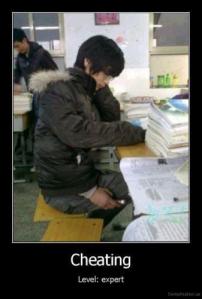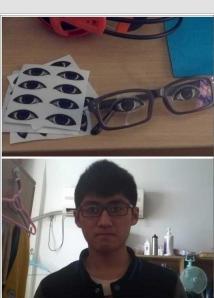Having reflected on some of the less charming behaviors of Chinese students, I would like to honor my promise to balance it out with telling you the best things about them.
The best thing about the other type of Chinese student—the opposite of the first Chinese student—is that they are motivated and ambitious. Our little BNUZ is just the first stepping stone in their journey. These kids are going places. Seriously.
I cannot tell you the number of students who are actively preparing for the GRE, the TOEFL, and IELTS in order to go abroad for graduate school. Those who are not going abroad are attending extra courses on the weekend, leading school-wide volunteer organizations, participating in Toast Masters, double majoring, and doing overseas volunteer trips. One student went to Serbia over the summer for an academic conference. Another went to Australia for a volunteer organization and will go to Kenya for the winter break. Though I despair over the behavior over the majority of the students, there are those other students who make it all worthwhile.
There are students who I would hope to meet in the future in the States, finishing their MA, their PhD, working, settling down, getting married etc. Others I would hope to hear about their progress by email. There’s that sense of potential about many of them. And it’s these students who make it worth it, especially when I have opportunities to develop more personal relationships outside the classroom. They’re great. Really and truly.
This is one thing that is such a contrast with Georgia. In Georgia I had little hope for even the brightest of my students. The furthest most of them might get was the capital, where they would hopefully finish university and be able to find some sort of job. Others you could just tell were bound to stay in the village for the rest of their life. Not that staying in the village is a bad thing, but I feel that more often than not it’s usually due to lack of other opportunities rather than true desire to stay.
So I’m happy for my Chinese students who are taking advantage of opportunities or making their own opportunities. I’m glad that they are working hard in university, preparing for their future. I’m especially glad that I got the opportunity to be their teacher, because otherwise I’m not sure I would’ve returned to China for a second year! A handful of excellent students can go a long way towards making up for an otherwise indifferent bunch.

